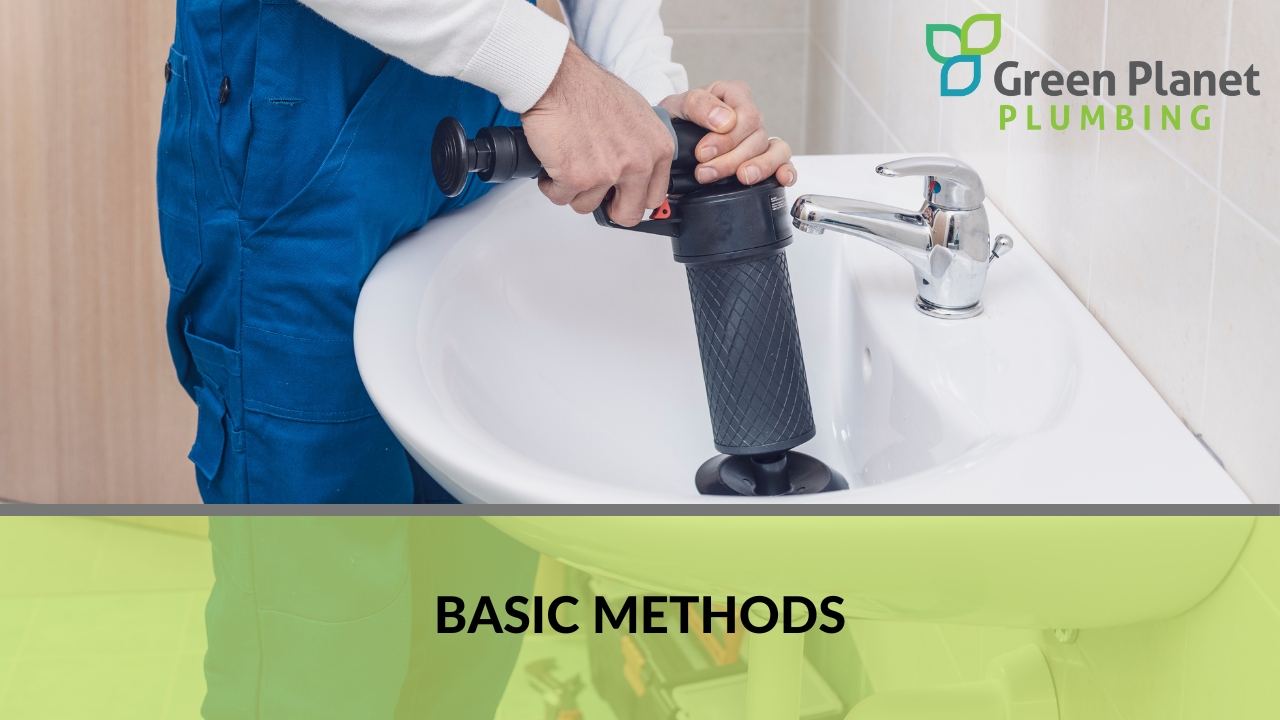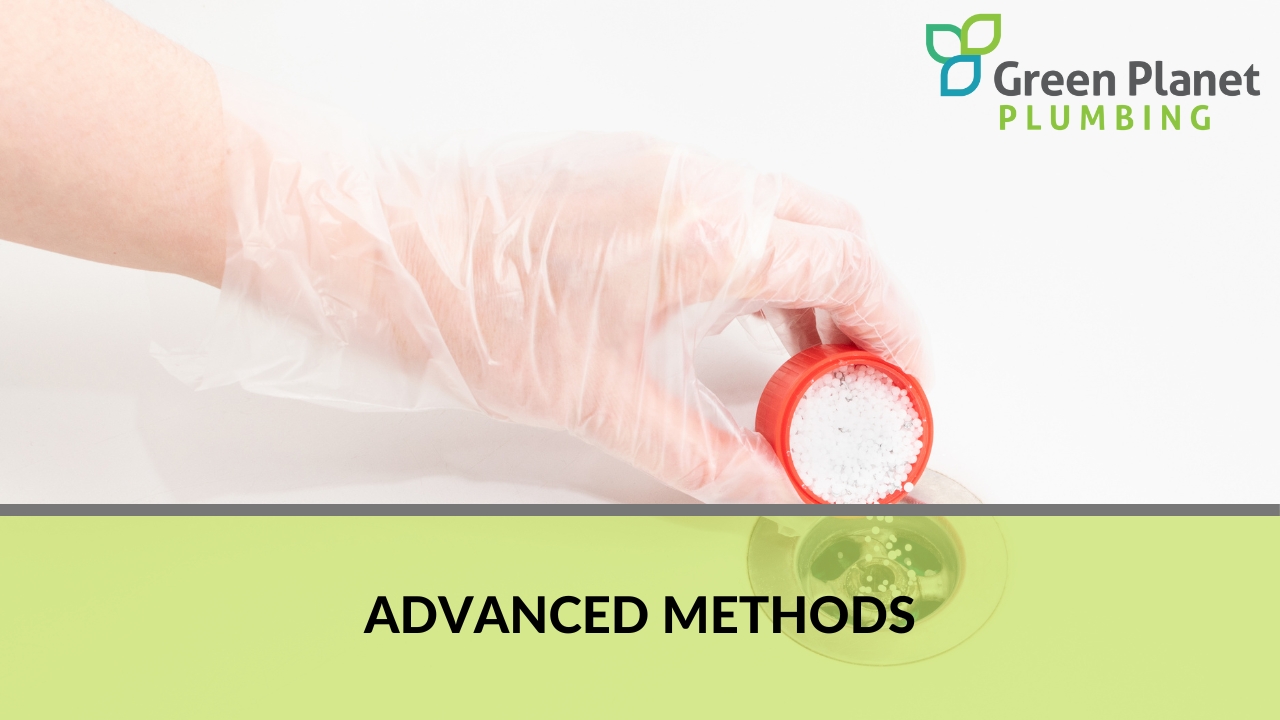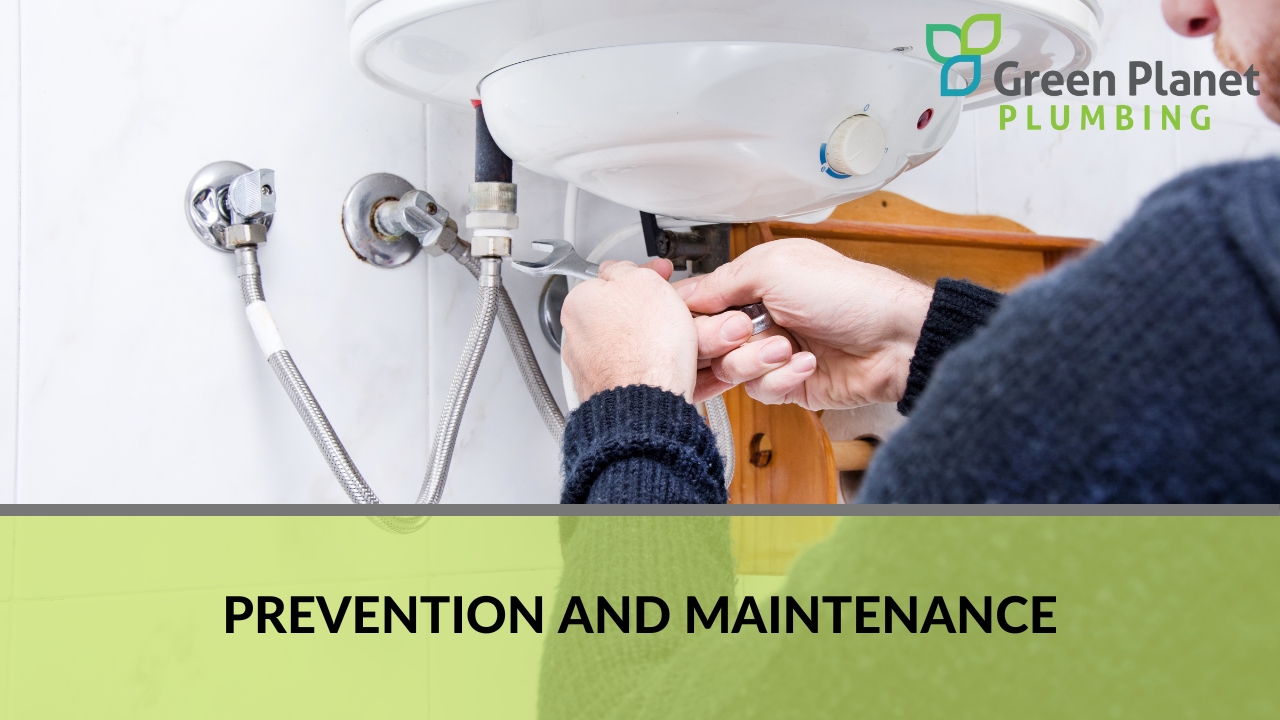Clogged drains are a common problem that homeowners often face. They can be caused by various factors, such as hair, soap scum, food particles, and grease. These clogs can cause slow drainage and complete blockages, leading to unpleasant odours and unsanitary conditions. In addition, clogs can cause damage to pipes and fixtures, leading to costly repairs.
Importance of avoiding chemicals
When faced with a clogged drain, it can be tempting to reach for chemical drain cleaners. However, these products are not only harsh on the environment but can also be dangerous to people. They can cause damage to pipes, skin, and eyes and release harmful fumes. These chemicals may not always effectively clear a clog and may even worsen the problem, so be cautious before reaching for the chemicals to help with your blocked drain.
Methods for unclogging a blocked drain
In this guide, we will discuss various methods for unclogging drains without using chemicals. We will start with basic methods, such as using a plunger and a bent wire hanger. We will also discuss more advanced methods such as using a drain snake, baking soda and vinegar, and hot water and dish soap. We will also provide tips on preventing future clogs and a regular maintenance schedule.

Basic methods
Here are the basic methods you can use for treating clogged drains.
Using a plunger
A plunger is a simple tool that can be used to clear a clogged drain. To use a plunger, first, fill the sink or bathtub with enough water to cover the cup of the plunger. Then, place the plunger over the drain and press down firmly to create suction. Next, pull the plunger up quickly to break up the clog. Repeat this process several times until the water drains freely.
Tips for maximising effectiveness:
- Place a wet rag over the overflow hole for sinks to create a better seal.
- For toilets, add enough water to the bowl to cover the plunger.
- Use a flange plunger for toilets, specifically designed for toilets with a flared base for a better seal.
Using a bent wire hanger
Straightening and shaping the wire hanger
A wire hanger can also be used to clear a clogged drain. First, straighten a wire hanger and shape it into a small hook. Carefully insert the hook into the drain and gently move it around to remove any debris clogging it.
Inserting the hanger into the drain
Insert the hanger into the drain and gently move it around to remove any debris that may be clogging the drain. Be careful not to push the debris further down the drain.
Removing debris
When you feel resistance or when you feel you’ve hit something, gently pull out the hanger and see what you’ve caught. The debris may be hair, food particles, or other debris. Once you’ve removed as much debris as possible, flush the drain with hot water to ensure it is clear.

Advanced methods
If the basic methods don’t work out, try these advanced methods, which use materials usually found at home.
Using a drain snake
A drain snake, also known as a plumber’s snake, is a long, flexible auger that can be used to clear a clogged drain. To use a drain snake, insert the end into the drain and slowly turn the handle to feed the snake into the pipe. Continue feeding the snake until you feel resistance, indicating that you have reached the clog. Then, turn the handle in the opposite direction to break up and remove the clog.
Tips for maximising effectiveness:
- Use a manual drain snake for small clogs and a powered drain snake for larger clogs.
- Be careful not to force the snake too hard into the pipe, as this can cause damage.
- If you are uncomfortable using a drain snake, it is best to call a professional plumber.
Using baking soda and vinegar
Mixing the ingredients
One natural method to unclog a drain is mixing baking soda and vinegar. To do this, pour 1/2 cup of baking soda down the drain, followed by 1/2 cup vinegar. The chemical reaction between the baking soda and vinegar will help to break up the clog.
Pouring the mixture into the drain
Allow the mixture to sit in the drain for at least 30 minutes to an hour, allowing the chemical reaction to take place.
Flushing with hot water
After the mixture has sat for the appropriate amount of time, flush the drain with hot water to clear away any remaining debris.
Using hot water and dish soap
Mixing the ingredients
Another natural method to unclog a drain is hot water and dish soap. To do this, pour a pot of boiling water down the drain, followed by a few squirts of dish soap. The dish soap will help to break up the clog, while the hot water will help to flush it away.
Pouring the mixture into the drain
Allow the mixture to sit in the drain for at least 5 minutes to allow the dish soap to work.
Flushing with hot water
After the mixture has sat for the appropriate amount of time, flush the drain with hot water to clear away any remaining debris.

Prevention and maintenance
Follow these prevention and maintenance tips to prevent future clogs.
Tips for preventing future clogs:
- Use strainers in your drains to catch hair and other debris before it can clog the pipes.
- Avoid pouring grease, oil, or fatty foods down the drain, as they can solidify in the pipes and cause clogs.
- Don’t flush non-biodegradable items like wipes, diapers, and sanitary napkins down the toilet.
- Don’t use chemical drain cleaners, as they can damage pipes and are not always effective.
Regular maintenance schedule tips:
- Run hot water down your drains regularly to help keep them clear.
- Clean your drain strainers regularly to prevent debris from building up.
- Have a professional plumber inspect and clean your drain pipes every few years.
When to call a plumber:
- If you have a major clog that cannot be cleared with a plunger or a wire hanger, it may be necessary to call a professional plumber.
- If you notice water backing up into other fixtures or a strong odour coming from your drains, it is also a good idea to call a plumber.
- If you notice any signs of damage to your pipes, such as leaks or cracks, it is important to call a plumber as soon as possible to avoid more costly repairs.

Taking steps to effectively clearing your blocked drains
In this guide, we have discussed various methods for unclogging drains without using chemicals. Basic methods, such as using a plunger and a bent wire hanger can be just as effective as more advanced methods. If they don’t work, then more advanced methods, such as using a drain snake, baking soda and vinegar, hot water, and dish soap may be warranted.
Get assistance with your blocked drain from Green Planet Plumbing
It is important to remember that prevention is key to keeping your drains flowing smoothly. Use strainers, avoid pouring grease and other debris down the drain, and use hot water to flush your drains on a regular basis. If you ever face a clog that you cannot clear, it is best to call a professional plumber such as the experts from Green Planet Plumbing. With years of experience in the plumbing industry, they can have your drain cleared in no time. Call (02) 4911 9402 today to get on top of the blockage!

